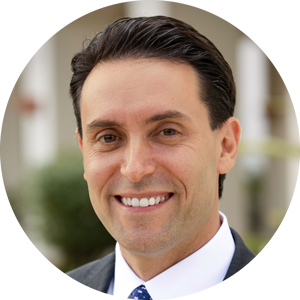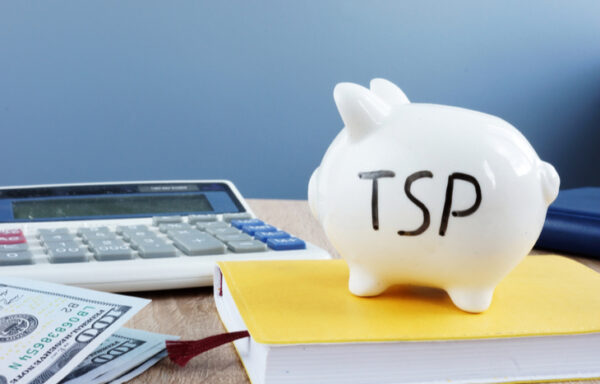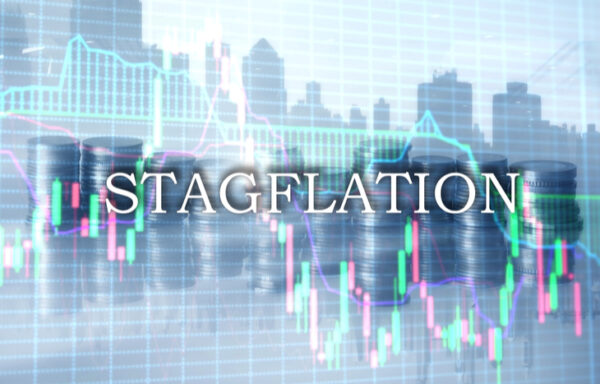Should You Borrow Money From Your 401(k)?
At a recent presentation, I was asked whether it’s a good idea to borrow from a 401(k) plan in order to pay down debt.
My initial reaction was a resounding “no.”
To accumulate wealth, you want to stay invested for as long as possible. Disrupting that cycle of compounding by taking money out of your 401(k) plan will very likely lead to lower returns.
Consider: An employee who invests $1,000 per year and earns 9.8% (the average annual total return of the S&P 500 over the past 50 years) annually on their 401(k) ends up with $191,607 after 30 years.
But if they invest that money for only two years fewer, their total will be $156,932.
A three-year disruption means they are down to $141,887. That’s $50,000 less than if they’d stayed invested the whole time.
However, if you have a high interest rate on your debt, it may make sense in some specific situations to pay it off using 401(k) funds.
Let’s look at the rules for borrowing against your 401(k).
- You are allowed to borrow up to $50,000 or half of your vested capital, whichever amount is lower.
- The money comes out of all of your investments equally. So if you are borrowing $10,000 and have five mutual funds in your account, $2,000 of each fund will be sold.
- You usually have five years to pay off the loan, though for a down payment on a primary residence you may have up to 30 years depending on your 401(k) plan.
You will pay interest on the loan. The good news is that you’re paying yourself. The bad news is that it’s with after-tax dollars that will be taxed again when you withdraw the funds in retirement.
Additionally, the interest rate you pay yourself will likely be lower than the return you would have gotten in the markets.
The average compound annual growth rate of the S&P 500 over the past 50 years is just a hair under 10%. The interest rate you will be paying yourself is likely significantly lower.
For example, Fidelity 401(k) plan participants pay themselves 6%.
So unless you’re lucky enough to withdraw funds right before a raging bear market hits, chances are, even with the 6% you’re paying yourself, your 401(k) will have less money in it than if you hadn’t touched it.
You may also pay fees for originating the loan.
That being said, some people have high-interest-rate debt. I asked my colleagues who have student debt what interest rates they are paying. Their rates ranged from a low of 3.6% to a high of 11%, with most rates falling between 5% and 8%.
In that case, if the interest rate on the 401(k) loan is similar to the rate on your outstanding debt, I’d rather see the investor continue to invest in their 401(k) so that it can compound for decades.
The investment will grow for many years beyond when the debt is paid off.
Of course, if you have a sky-high interest rate on your credit card debt, eliminating 18% debt may make sense.
You Pay Now
If you’re considering borrowing from your 401(k), you must be disciplined. You can’t be like Will Ferrell negotiating with his landlady Pearl.
You must pay when the payment is due. Otherwise, as with stiffing Pearl, the consequences will be severe.
If you miss a loan payment, the withdrawal is considered a distribution. You will then have to pay tax on the distribution, and if you’re under 59 1/2 years old, you will pay a 10% penalty.
Additionally, if you leave your job, voluntarily or otherwise, the loan must be paid back by the tax due date for that tax year.
So if you have an outstanding 401(k) loan today and leave your job tomorrow, the loan will need to be paid back by April 15, 2020.
Failure to do so makes the loan a distribution, and you will be on the hook for taxes and the 10% penalty if applicable.
If you’re going to take out a 401(k) loan, you need to be confident that you’re not leaving your job anytime soon – or that you can repay the loan if you do.
In most cases, except for loans with high interest rates, I recommend that investors not borrow from their 401(k) plans. It will lower the amount in their nest eggs when they need it.
What’s been your experience with 401(k) loans? Share in our comments section.
[adzerk-get-ad zone="245143" size="4"]About Marc Lichtenfeld
Marc Lichtenfeld is the Chief Income Strategist of Investment U’s publisher, The Oxford Club. He has more than three decades of experience in the market and a dedicated following of more than 500,000 investors.
After getting his start on the trading desk at Carlin Equities, he moved over to Avalon Research Group as a senior analyst. Over the years, Marc’s commentary has appeared in The Wall Street Journal, Barron’s and U.S. News & World Report, among other outlets. Prior to joining The Oxford Club, he was a senior columnist at Jim Cramer’s TheStreet. Today, he is a sought-after media guest who has appeared on CNBC, Fox Business and Yahoo Finance.
Marc shares his financial advice via The Oxford Club’s free daily e-letter called Wealthy Retirement and a monthly, income-focused newsletter called The Oxford Income Letter. He also runs four subscription-based trading services: Technical Pattern Profits, Lightning Trend Trader, Oxford Bond Advantage and Predictive Profits.
His first book, Get Rich with Dividends: A Proven System for Earning Double-Digit Returns, achieved bestseller status shortly after its release in 2012, and the second edition was named the 2018 Book of the Year by the Institute for Financial Literacy. It has been published in four languages. In early 2018, Marc released his second book, You Don’t Have to Drive an Uber in Retirement: How to Maintain Your Lifestyle without Getting a Job or Cutting Corners, which hit No. 1 on Amazon’s bestseller list. It was named the 2019 Book of the Year by the Institute for Financial Literacy.






